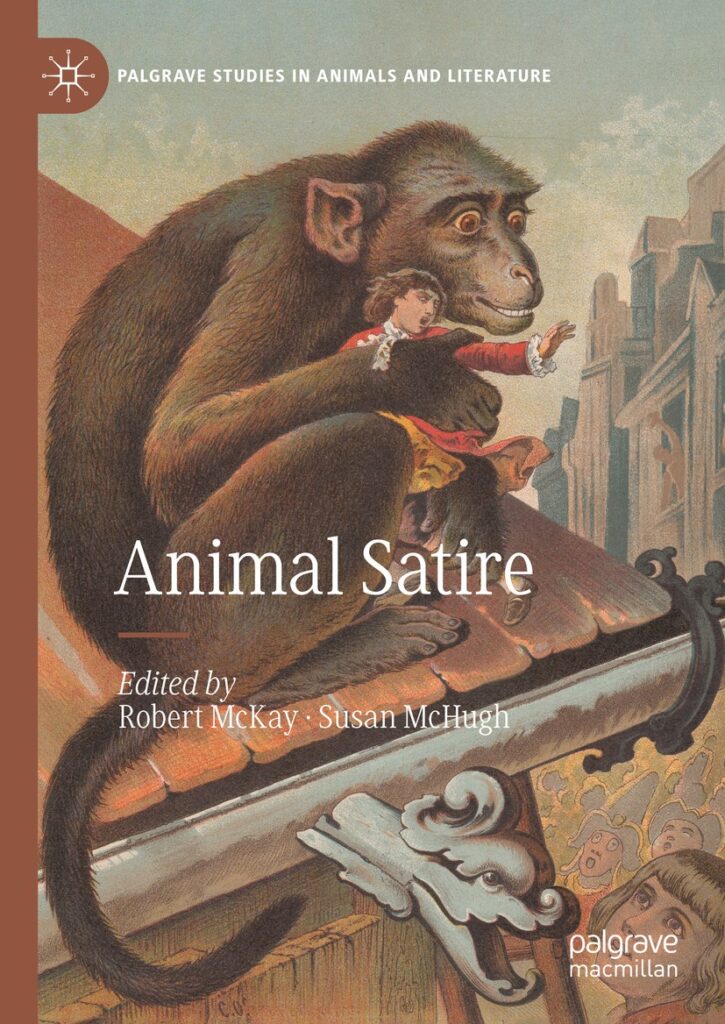
Susan McHugh’s latest book Animal Satire presents what a peer reviewer terms “a uniquely valuable collection with expansive reach.” With contributions from twenty-two authors from around the globe, the volume presents the first-ever cultural history of animal satire as a critically neglected but persistent tradition through which animals expose human folly while the strategies of satire expose the folly of human-animal relations. Highlighting the teeming animal presences across the history of satirical expression from Aristophanes to Twitter, with chapters on key works of literature, drama, film, and a plethora of satirical media, Animal Satire reveals the rich rhetorical significance of animality in powering the politics of satire from ancient and medieval through modern and contemporary times.
More pressingly, the book makes the case for the significance of satire for understanding the real-world implications of rhetoric about animals in ongoing struggles for justice. By gathering both critical and creative examples from representative media forms, historical periods, and continents, this volume enriches scholarship on the history of satire while aiming to inspire creative practitioners with ideas about its practical applications today. McHugh edited the project in collaboration with Robert McKay, a colleague at Sheffield University, UK with whom she has worked for decades on several other projects. In addition to coauthoring the volume’s introduction, McHugh became inspired to contribute an original piece of satire to serve as the book’s conclusion, rounding out a critical-creative model that makes the topic so compelling.
